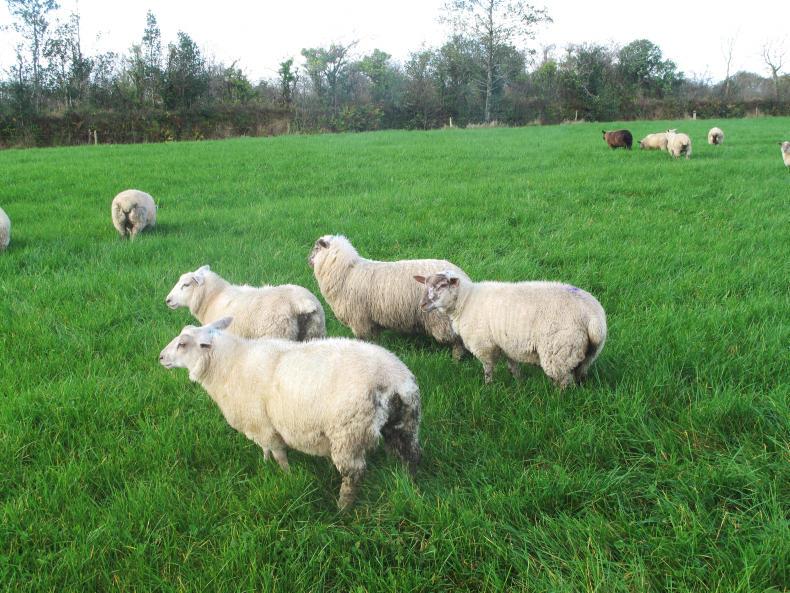The results of a recent Teagasc/UCD study questioning if leaving ram lambs entire affects their meat quality were presented at Tuesday evening’s lowland sheep conference in Loughrea.
The study, which included analysis of hill and hill cross lambs finished on a high-concentrate diet, found that while castrating lambs lowers the chance of problematic meat samples, it will not eliminate the risk.
Professor Michael Diskin of Teagasc said the study suggests that so-called ram taint issues might be due to other factors such as slaughter age, diet and consumption habits.
The study confirmed the higher production efficiencies of finishing male lambs entire, with farmers advised that decisions on castration need to take account of their farming system, flock size, grazing infrastructure and target market. With a growing trend of non-castration, the conference highlighted that if processors want a higher number of wether lambs, they will need to reward producers with a price premium.
Soil fertility
Philip Creighton of Teagasc Athenry outlined a worrying continuous deterioration in soil fertility levels on drystock farms. Teagasc analysis shows just 9% of soils on drystock farms classified as having good overall fertility.
Figures presented showed just 32% of drystock farms nationally possess the desired soil pH of >6.2. Similarly, just 36% of soils are at index 3 or 4 for soil phosphorus, rising to 42% for soil potassium levels.
Creighton said sheep farmers on average utilise 5.6t grass dry matter per hectare, with huge potential to increase this to at least 10t grass DM/ha.
Achieving this goal, he said, would allow stocking rates to increase to 10 to 12 ewes/ha and sustain output capable of returning a gross margin in excess of €1,000 gross margin per hectare.
Meanwhile, UK-based health specialist Fiona Lovatt warned farmers there is a growing risk of emerging diseases causing huge harm to the Irish sheep sector.
She highlighted OPA or Jaagsiekte sheep retrovirus, Ovine Johnes’ Disease and CLA (caseous lymphadenitis) as now being a huge cause of mortality on UK sheep farms.
She urged farmers to put biosecurity measures in place to guard against disease entry and advised the Irish sheep industry as a whole to be extra vigilant against introducing Maedi Visna, a devastating disease which is becoming rampant in the UK.
Read more
Meat quality study favours castrates over ram lambs
Sheep farming management notes
The results of a recent Teagasc/UCD study questioning if leaving ram lambs entire affects their meat quality were presented at Tuesday evening’s lowland sheep conference in Loughrea.
The study, which included analysis of hill and hill cross lambs finished on a high-concentrate diet, found that while castrating lambs lowers the chance of problematic meat samples, it will not eliminate the risk.
Professor Michael Diskin of Teagasc said the study suggests that so-called ram taint issues might be due to other factors such as slaughter age, diet and consumption habits.
The study confirmed the higher production efficiencies of finishing male lambs entire, with farmers advised that decisions on castration need to take account of their farming system, flock size, grazing infrastructure and target market. With a growing trend of non-castration, the conference highlighted that if processors want a higher number of wether lambs, they will need to reward producers with a price premium.
Soil fertility
Philip Creighton of Teagasc Athenry outlined a worrying continuous deterioration in soil fertility levels on drystock farms. Teagasc analysis shows just 9% of soils on drystock farms classified as having good overall fertility.
Figures presented showed just 32% of drystock farms nationally possess the desired soil pH of >6.2. Similarly, just 36% of soils are at index 3 or 4 for soil phosphorus, rising to 42% for soil potassium levels.
Creighton said sheep farmers on average utilise 5.6t grass dry matter per hectare, with huge potential to increase this to at least 10t grass DM/ha.
Achieving this goal, he said, would allow stocking rates to increase to 10 to 12 ewes/ha and sustain output capable of returning a gross margin in excess of €1,000 gross margin per hectare.
Meanwhile, UK-based health specialist Fiona Lovatt warned farmers there is a growing risk of emerging diseases causing huge harm to the Irish sheep sector.
She highlighted OPA or Jaagsiekte sheep retrovirus, Ovine Johnes’ Disease and CLA (caseous lymphadenitis) as now being a huge cause of mortality on UK sheep farms.
She urged farmers to put biosecurity measures in place to guard against disease entry and advised the Irish sheep industry as a whole to be extra vigilant against introducing Maedi Visna, a devastating disease which is becoming rampant in the UK.
Read more
Meat quality study favours castrates over ram lambs
Sheep farming management notes






 This is a subscriber-only article
This is a subscriber-only article





SHARING OPTIONS: